The Co-operative Councils Innovation Network held its tenth anniversary conference in Telford in November, looking at ways to embed grassroots co-op ideas in communities.
Steve Reed, Labour Co-op MP, shadow justice secretary and honorary president of CCIN, said Labour was finally facing the prospect of national power – but warned that the party still has to make a positive offer to inspire voters.
This positive offer can be found in co-op councils, he suggested. “While Labour nationally needed to rebuild trust, our best Labour councils were already doing it and also forging a new way to run public services … Our public services work better when we do things with people rather than to people.”
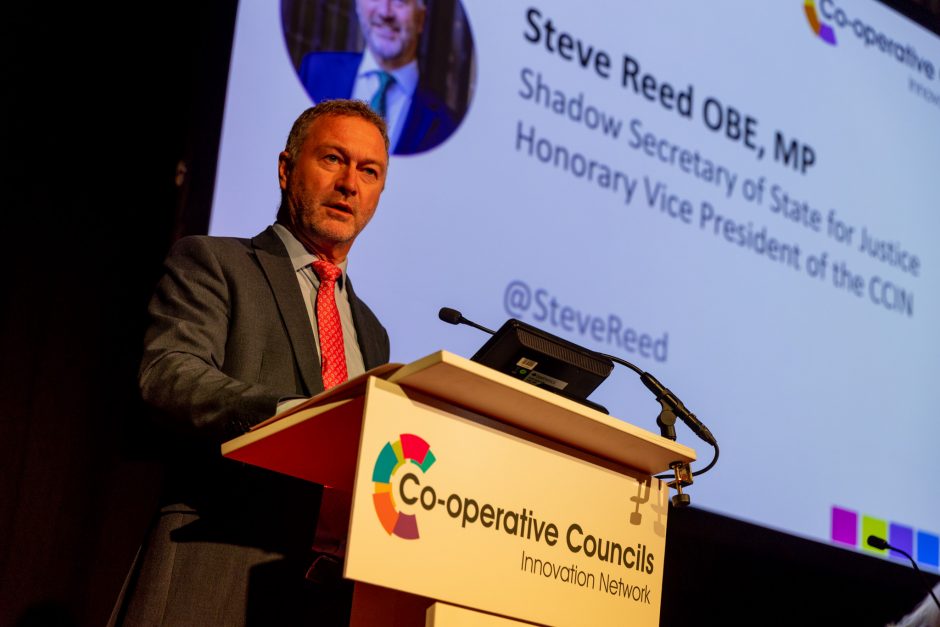
Reed said politicians can regain public trust by showing trust in the public; building on this idea, the CCIN has created the biggest, and fastest-growing, network in local government.
CCIN’s ideas are also being fed up to national level, he added, citing Keir Starmer’s recent pledge for a National Wealth Fund, building on the ideas of community wealth building introduced to the UK by Preston Council.
Noting that CCIN is a non-partisan organisation, Reed said it was “really important that this network has members from all parties that believe in this direction”. There is a split in politics that is not left / right but about localisation or centralisation of power”, he argued; this makes devolution more important than electoral reform, he believes.
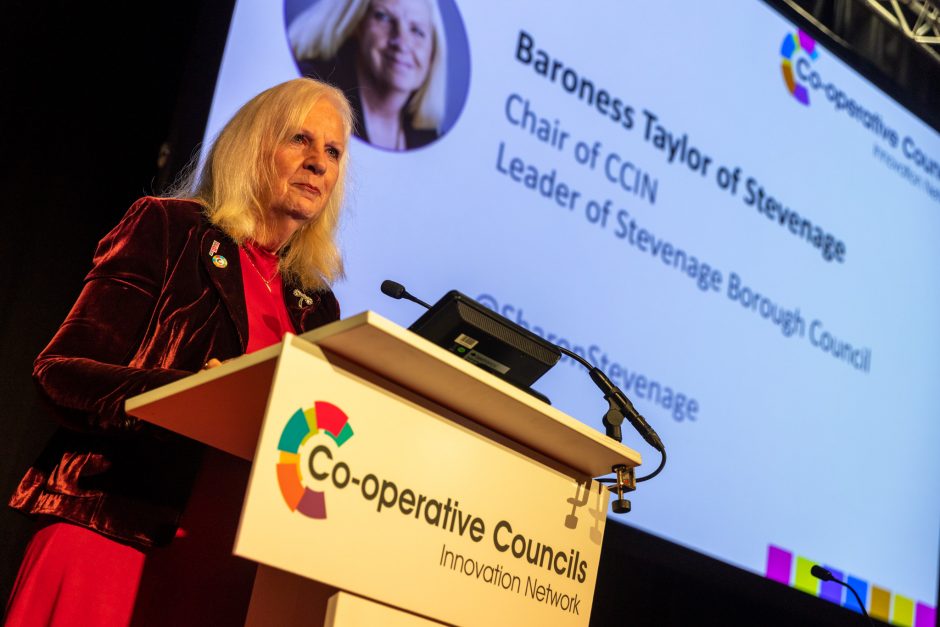
Reed was followed by a panel presenting examples of co-op thinking. Cllr Paul Foster, leader of South Ribble Council, gave a presentation on the recent CCIN fact-finding trip to the Mondragon Co-op Federation in the Basque Country, Spain. Mondragon’s successes are well documented but Cllr Foster fears the model would be hard to replicate in the UK, thanks to the “cultural challenges we face around collective action, shared prosperity, the loss of hope and individualism”.
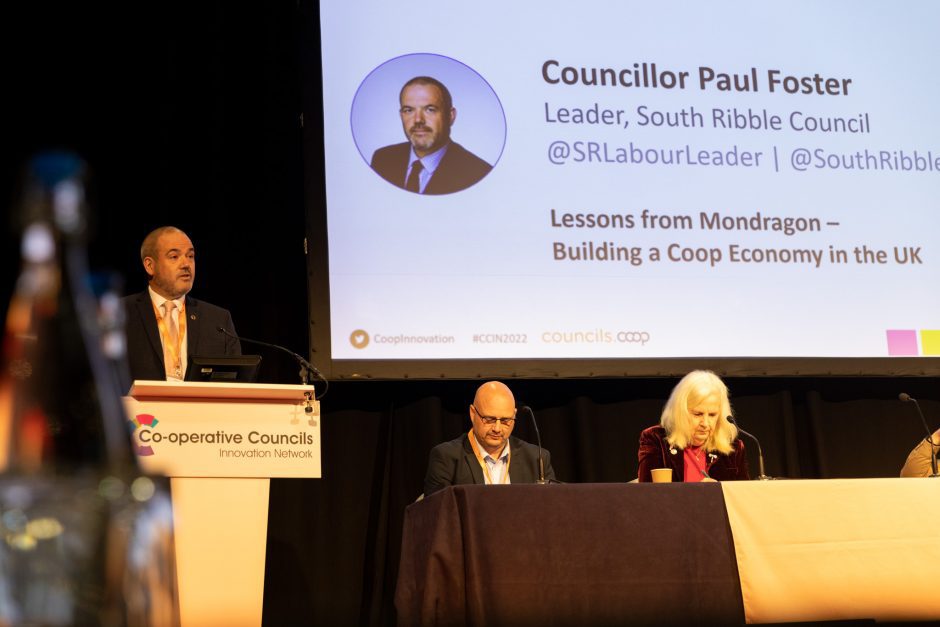
But, he added, “we do have the political will to encourage food bank co-operatives, small business start-ups as co-operatives, and then provide the critical seed funding to support them”. His cabinet has just awarded its first procurement contract to a co-op, he said.
Related: Co-op councils head to Mondragon for lessons in economic revival
Marc Hooper from Banc Cambria – a Welsh community bank which is in the planning stage, with cross-party support in the Senedd – said mutuals can offer an alternative to “extractive” high street banks. The five big UK banks handle 92% personal accounts but are closing branches, taking capital out of communities and sometimes using customers’ money for unethical investments such as fossil fuels. Compared to Germany, where two-fifths of banks are small, regional or co-operative banks, or the US, where credit unions enjoy substantial market share, the UK is “an outlier”, said Hooper. “We are doing it wrong.”
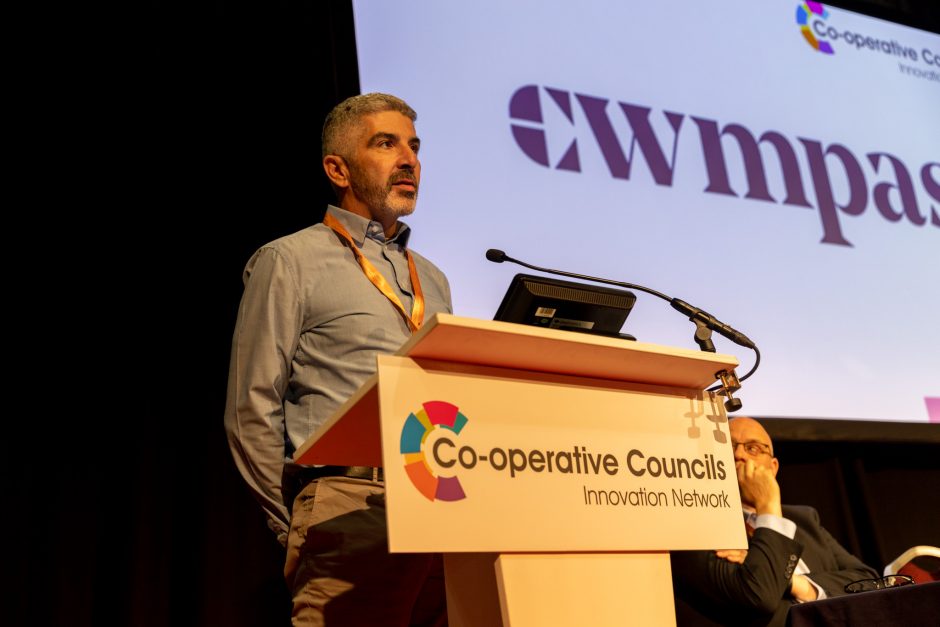
Derek Walker, CEO of Welsh co-operative development agency Cwmpas, highlighted his organisation’s work developing co-op models in sectors such as housing and care; he urged councils in England to create co-operative development agencies, or support existing ones, so they can replicate such projects.
“We need to create a fairer, more co-operative economy in your local areas,” he said. “You do require the support of experts and co-op development agencies and they don’t exist in every part of the country and sometimes are not very well resourced.”
Walker suggested means to remedy this, including using money from the Shared Prosperity Fund.
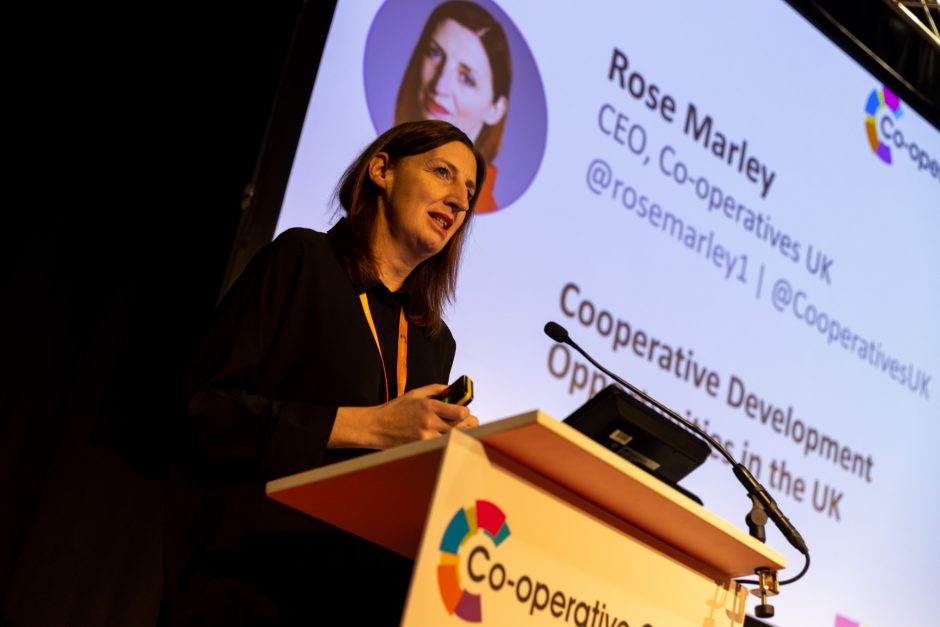
Rose Marley, CEO of Co-operatives UK, gave an overview of the UK sector, with examples of new start-ups including a co-op of GP surgeries in Dundee, set up to attract practitioners who had been reluctant to come to the area. She pointed councils towards funding mechanisms such as community share offers, and to the support that Co-operatives UK itself can offer.
Shabir Pandor, leader of Kirklees Council, discussed efforts to build a more inclusive economy in an area whose 433,000 residents are spread across a mix of towns and villages, with high levels of inequality that leave 36% of children in poverty. In response the council is directing its £1bn public spend to deliver social value in procurement, trying to ensure that it is itself an inclusive employer, and using asset transfers to the community to ensure the flexible use of town centre spaces.
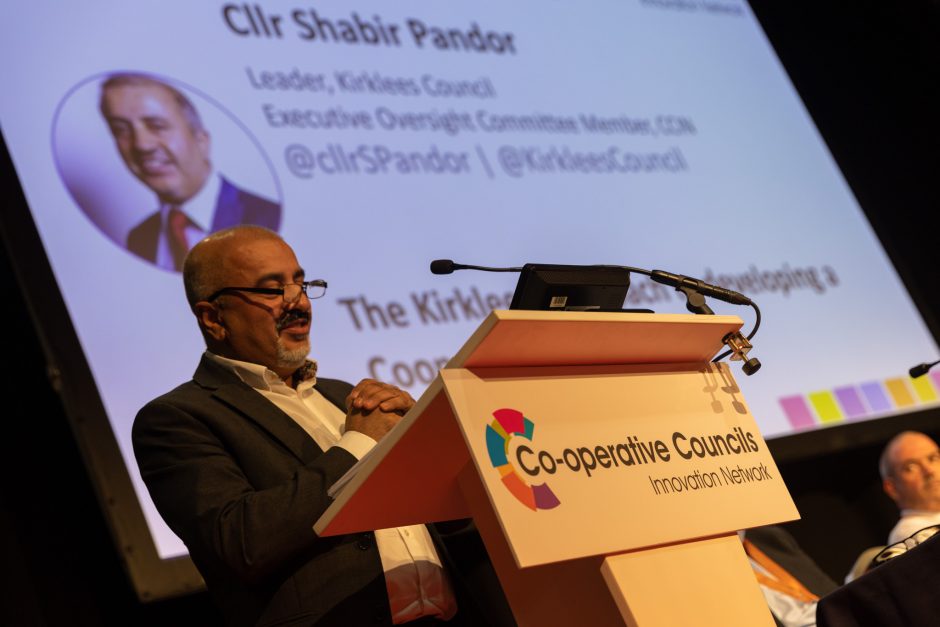
Side events included a presentation by Mark Cook, from Anthony Collins Solicitors, on coming changes to the law which will affect councils’ ability to deliver community wealth building through procurement.
The Procurement Bill going through Parliament “offers less flexibility in my view”, said Cook, before setting out ways councils can “work harder to get what they want out of it”.
This includes “checking your powers”, identifying the short and long-term policy basis for action, and including these details in the business case for a project.
Project management is important, he added, so that if a large firm loses out on a contract to a group of SMEs, they can be satisfied that the terms of the deal were met and that the process was fairly conducted. And it is vital that the subject matter of a contract reflects the desired policy behind it.
Cook suggested the process of delivering social value could be facilitated by creating co-operatives of councils, businesses and deliverers to run contracts.
In another side session, Mark Simmonds, an advisor at Co-op Culture, looked at how councils can offer business support to co-ops, and at the issue of training for development workers. He is working with Stir To Action to set up a development course, the Co-operative Option.
He said the onus is not just on councils to reach out to co-ops to offer development support; co-ops also need to be more proactive in accessing the support that councils already offer. They can miss out on this help because it is often couched in terms suitable to solo entrepreneurs and other conventional business models; but these schemes can still be beneficial, said Simmonds, as they offer capital grants and funds for sustainability and innovation.
There are around 50 co-op development bodies around the UK which would benefit from local authority support, he added. And as an example of how local authorities can get involved in specific projects, he discussed a co-op
he is helping to set up in Calderdale, west Yorkshire. This related to the Biodiversity Net Gain requirement, which means developers must more than make up for loss of biodiversity from a project by buying biodiversity units elsewhere. Simmonds is working with farmers to create a multi-stakeholder co-op which could offer these units.

Highlighting the power of cross-party working, Green peer Baroness Bennett of Manor Castle gave a speech stressing the need to engage communities to deliver innovation in sustainability. Options for councils could be as simple as planting verges with wildflowers.
She said grassroots working could help build a model of democracy where parties work together, ending the seesaw of policy where successive governments overturn the work of their predecessors. “I’m happy to work with councillors from any party,” she said. “If you have an issue I am happy to table a question about it.”

